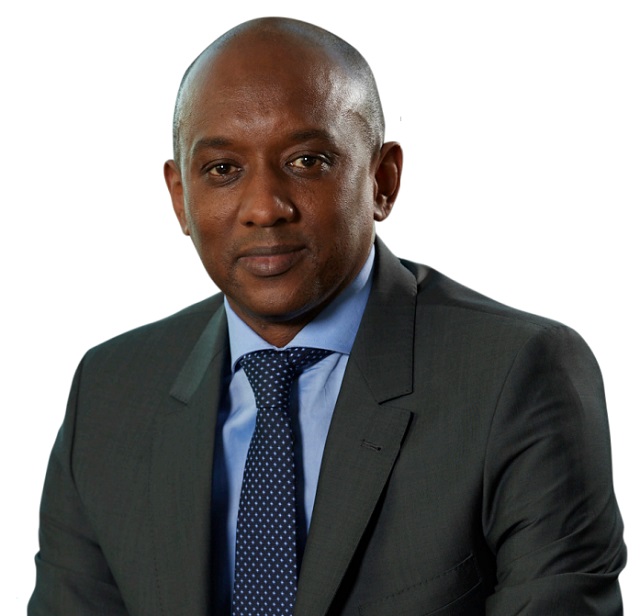
Cheick-Omar Diallo, the TotalEnergies Spokesperson for the Tilenga and EACOP projects accompanied a French contingent of journalists on tour of Uganda’s oilfields and project affected persons. The Independent’s Ronald Musoke was on the four day visit (July 16-19) and spoke to him about his impressions.
Tell us about your visit of Uganda and your contingent?
It was important to visit Uganda alongside other stakeholders (French journalists). Why? Because a lot has been said about Tilenga and the EACOP project but as our CEO, Patrick Pouyanné has said before, we are very open to show what we are doing in Uganda. We are aware that among people who are talking about this project, there may be some who are not very well informed about this project. So, our objective is to show the journalists what we are doing and hopefully they can tell the people back home about what TotalEnergies’ ambitions for both Uganda and Tanzania are in terms of sharing our value generated by this project, biodiversity conservation, support to local people’s livelihoods, and local content. We want to show our full commitment towards this project and how the project will be developed. Our intention is to show that we are transparent in our operations and that we remain very open even with the criticism we are facing. We want to show that our ambitions for Uganda and Tanzania are sincere.
Talking about the ‘criticism’ you are facing especially from the climate change activists, what do you think about their sentiments towards the Tilenga and the EACOP?
My starting point is that two sovereign states; Uganda and Tanzania, have decided to go ahead with these projects. I think it is because they are aware about the many challenges they are facing now and in the coming years; infrastructure, a growing young population which needs education, health and jobs and this project can try to help them in solving some of those challenges. The second point is that whatever climate change activists say, our world needs oil today and if we don’t launch new projects, there will be a discrepancy between what is available and what is demanded. This will definitely lead to high prices. Thirdly, we have launched this project thanks to the availability of new technologies. We are working on a project which is very low on greenhouse gas emissions. If I may give an example; as far as CO2 emissions per barrel are concerned, for the Tilenga/EACOP, the CO2 emissions are 13kg/barrel. In Africa, the average emissions of CO2 per barrel equal 33kg. So greenhouse gas emissions will be lower than other projects. In regards to the climate change debate, we know that greenhouse gas emissions from Africa are around 3% of global emissions. So, can we really blame Uganda and Tanzania about climate change emissions? But I also want to talk about all the positive aspects created by this project in terms of employment. We are talking about the creation of roughly 80,000 jobs during the first phase of the project; we are talking about US$ 1.8 billion directly injected into the Ugandan economy. This investment will be injected in just two years. So, we are talking about real financial resources that the country will benefit from. The climate change activists can come and try to see what is happening on the ground; they can read the reports the journalists who have visited our sites will publish and they can also take into account the challenges faced by these two countries. What is not good is to have an opinion with wrong information.
In our earlier conversation you expressed your frustration about climate change activists on account that they rarely offer practical and concrete alternative for countries like Uganda on how to tackle their energy transition while keeping their fossil fuel resources underground. Please explain?
Yes. What we are saying is that we are aware that we need to have green energies. We are also aware that this needs to go via a transition path.We cannot change suddenly and say we are converting to electricity because we see how the world operates. We still need oil today and we have committed to green energy by 2050. Today, most of our energy comes from gas and electricity. By 2050, about 75% of our energy will come from renewable electricity and new molecules. During our meeting with the Director of petroleum resources (Honey Malinga) he noted how developing countries are still waiting for the US$100 billion promised by the developed countries to implement the Paris Climate Change Accord. Countries like Uganda and Tanzania have committed onto the energy transition but to achieve this, they need financial resources. It’s really important for African countries to get onto this energy transition but one should not ask these countries to stop tapping their fossil fuel resources; rather we should say:We will help you with your energy transition by having the financial resources to face all your challenges.
You have just returned from the field visit where you were able to see firsthand ongoing oilfield developments, you took a safari in Murchison Falls National Park and also visited some of the beneficiaries of livelihoods programme for the people who have been displaced by both the Tilenga and EACOP projects. How satisfied are you with what you have seen?
I saw a lot of positive things. You have mentioned, for instance, the biodiversity programme. When you see how we intend to work with the Uganda Wildlife Authority and how we will ensure co-existence between tourism and oil production, you notice that we not only have an amazing project but also a very strong and deliberate process. Obviously the support to the people impacted by the projects is something good. We have visited the people who have got new houses built for the displaced and we have seen that these new houses are more comfortable than the ones they owned before. You have also mentioned the livelihoods restoration programme. The efforts we have put in place in terms of food security, health, water, road safety and others are all positive impacts for the population. Indeed, when we spoke to some of the people, they agreed that their living conditions have improved.
We also saw that TotalEnergies has gone beyond the project affected persons into the adjacent communities by constructing and equipping a health facility as well as launching a water project. What’s behind all this?
It’s all about our commitment to this particular project although such projects also manifest in all the countries where we operate. It’s about sharing the prosperity the projects generate. In Uganda, what we have done is to invest in a water accessibility project because it is an issue for the communities in Buliisa District. We are also thinking about improving access to energy.We will work with Uganda and Tanzania so that we can bring electricity to the final consumer but we also want to invest more in renewable energies. We have already signed an MOU with the Uganda government to invest and develop 1Gigawatts in renewables and we are in discussion with Tanzania. We are committed to sharing because we think that if you want to have a sustainable presence in the countries where we operate, we have to cultivate a win-win relationship.
What are some of the challenges TotalEnergies has faced while implementing your projects in Uganda?
First, this is an on-shore operation, not offshore. And this means that we have had to deal with many people so we do have issues linked to people’s safety.The location of the project has also been an issue. Part of our operation is in a sensitive environment, so tackling the challenges linked to biodiversity in this area has been an important aspect. We also have a pipeline and there have been technical issues but we have put in place new technologies to monitor this pipeline.
How about the financing aspect of this project? Some international financial institutions have been distancing themselves from the EACOP project?
The finances for the Tilenga project are in place. For the other aspect regarding transport of the petroleum resources (EACOP), we are in discussion with some financial institutions that are interested in the project. It’s not a problem for us at the moment.
Some industry experts keep wondering why TotalEnergies is willing to put its reputation on the line considering the negative press the project has attracted especially in the Western countries. Why are you so keen on sticking with the Uganda Oil project?
First, we don’t think this project is controversial. If it was the case, we would not be involved. Our goal is to supply the world with energy with the least greenhouse gas emissions. We have also committed to reach net zero emissions by 2050. The Ugandan project cycle is a 20 year production cycle, so it will go on up until about 2045. By this time, we will have met our goal of supplying energy to the world. Moreover, in terms of cost of production, we are under US$ 20 per barrel, which for us fits into our guidelines for production. So for us, it is a positive project.
Who is Cheick-Omar Diallo?
I am the Spokesperson for Tilenga and the East African Crude Oil Pipeline (EACOP) in Uganda and Tanzania. I joined TotalEnergies 23 years ago in the sales department in my native country, Niger. I was then appointed Technical, Operations and Sales Manager for the company’s Central African Republic affiliate. I stayed there for three years before moving to Paris in France where I became the Auditor for the TotalEnergies Company. I held this position for two years and I was then sent back to Africa to be in charge of our marketing and services affiliate in Mauritania. I stayed in Mauritania for three years. I then came back to Paris to be in charge of the careers path and management of employees for TotalEnergies’ Africa and Middle East portfolio, marketing and services branch. I did this job for two years before heading back to Africa (Guinea-Conakry) where I was Managing Director for our marketing affiliate. I stayed there for three years. I then went back to Paris to be Vice President in charge of human resources for Africa (marketing and services branch) for three years. And since July 1, this year, I got into this new position of being the Spokesperson for both Tilenga and the EACOP.
Your final remarks?
Uganda and Tanzania have taken the decision to develop the oil and gas resources and have chosen TotalEnergies as the operator because they are aware that it is strong on the processes. TotalEnergies is very strong on the aspects of biodiversity conservation, human rights and many other aspects. This project will generate revenues for the company and for the two countries. It will boost relations between TotalEnergies and Uganda and Tanzania.
****
 The Independent Uganda: You get the Truth we Pay the Price
The Independent Uganda: You get the Truth we Pay the Price



